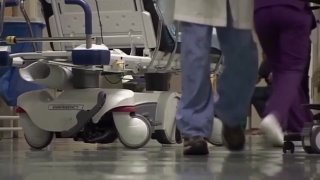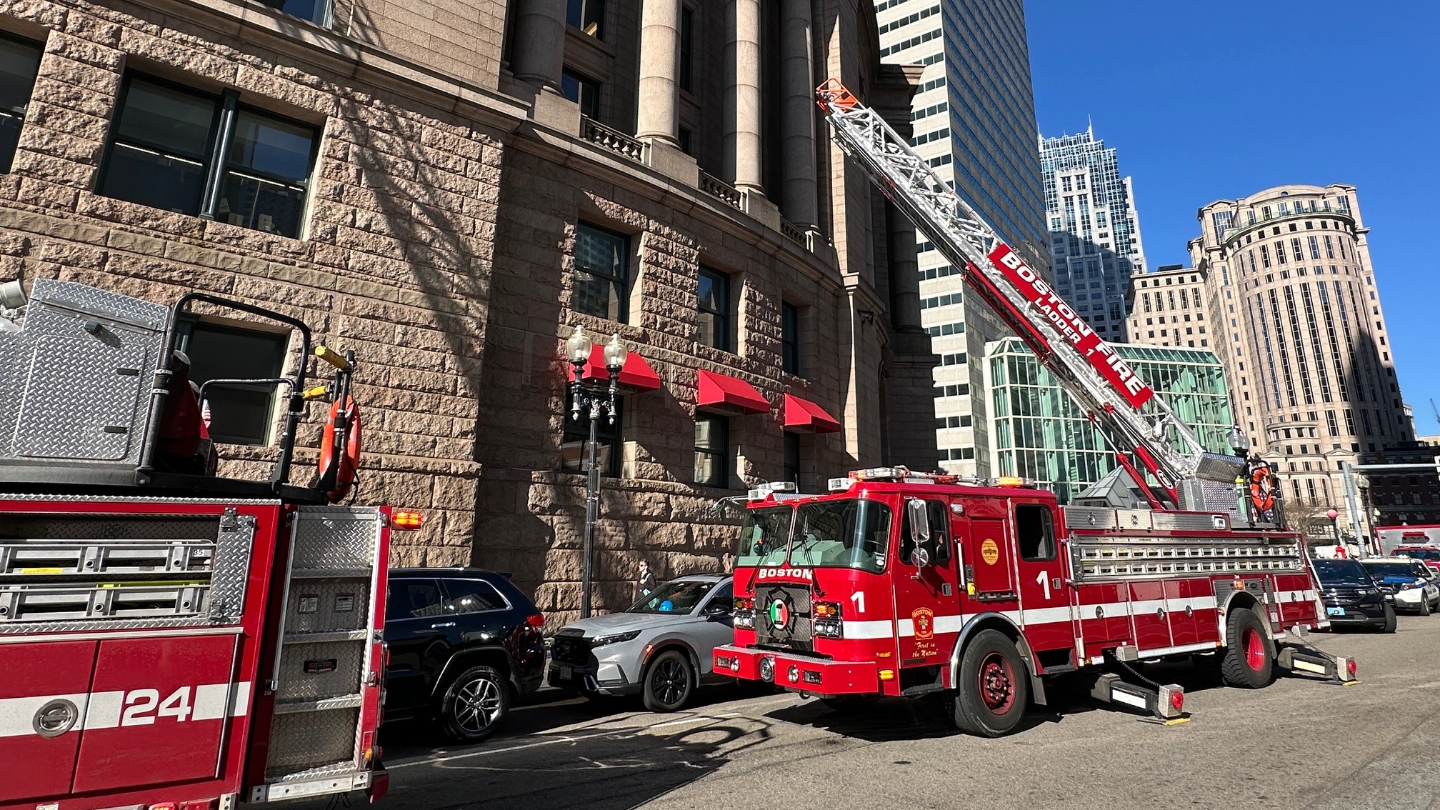
Staffing shortages in health care might be here to stay, and the industry needs to reimagine how it delivers care, Gov. Charlie Baker said Thursday morning.
"There's this giant staffing problem running across the system, but that staffing problem is doing significant damage to the normal process by which the system works," Baker said at a Massachusetts Association of Health Plans conference at the Seaport Hotel. "People really need to think differently about how all the pieces of the system are organized."
The governor partially attributed the staffing shortages to a swath of Baby Boomers retiring earlier than they otherwise might have if not for COVID-19, taking "a huge chunk of big-time talent out of your staffing models."
The staffing issues are also affecting health care payments, he said. Rehabilitation and long-term care facilities that are understaffed are unable to take in new patients from hospitals, leading to patients staying longer in hospital beds waiting for a spot in their next treatment facility to open up.
Get Boston local news, weather forecasts, lifestyle and entertainment stories to your inbox. Sign up for NBC Boston’s newsletters.
"If you look at the average time to stay in a hospital right now, not just in Massachusetts, or many places around the country, it's about a day and a half longer than it used to be," Baker said. "So now you have a situation where hospitals are providing a lot of care for which they are not being paid."
In October, the Massachusetts Health & Hospital administration estimated Massachusetts hospitals had about 19,000 full-time vacancies.
Baker said he doesn't have an exact answer for how to solve the problem, but that the future of the industry may never return to what it looked like before the pandemic.
Local
In-depth news coverage of the Greater Boston Area.
Tim Foley, executive vice president for 1199SEIU, which represents over 70,000 health care workers, said the staffing shortage is a "whole system issue," across hospitals, nursing homes, home care, and other care facilities, which requires a "whole system solution."
"Some of these jobs are not going to be replaced, we need to get together and think about new care delivery models," Foley said.
The health care union is promoting apprenticeship programs to both retain and attract new talent, and claims apprenticeships allow low-wage workers already in the field to move up the career ladder without having to take time off without pay to take classes.
Of the students enrolled in the 1199SEIU's educational and job training program fund, 82 percent are women, 45 percent have dependents, their average age is 48, 42 percent speak a second language and 41 percent are born outside of the U.S.
"That is who our health care system is made of," Foley said. "We need to make sure they have a seat at the table in determining what those new care delivery models are."
Get updates on what's happening in Boston to your inbox. Sign up for our News Headlines newsletter.
At the MAHP conference, Secretary of Health and Human Services Marylou Sudders announced a loan forgiveness program for individuals in parts of the behavioral health field, "to really say we acknowledge you and we want you to stay in this field," she said.
Social workers, physicians, nurses, psychiatrists, substance use recovery coaches and others who work in community health centers will be able to apply next month to have the state repay between $12,500 and $300,000 worth of loans as part of the $130 million program.
"I think going forward, my plug would be to invest in people's education," Sudders said. "To have people work in these fields we need to say, 'We value you and we want to work with you.'"
As part of rethinking what health care looks like in Massachusetts, Baker said there is opportunity to reimagine public health care plans.
The governor said the current federal Medicare reimbursement model isn't designed for increased chronic care needs that come with addiction and mental health crises that have risen in the country.
A recently approved waiver deal that pledges $67 billion to tailor public health insurance programs to specific state preferences "sets the table for a very significant change in the way, over time, MassHealth and Medicaid pay for stuff," Baker said.
The Centers for Medicare and Medicaid Services approved the Section 1115 demonstration waiver in September, allowing the state to invest tens of millions of dollars into primary and mental health care workforce development and offer continuous Medicaid eligibility for some vulnerable populations. It took effect on Oct. 1 and stretches until December 2027, well beyond Baker's time in office.
It will allow the state to "expand both service delivery and capacity," Baker said in September, highlighting mental health care as an area particularly bolstered by the agreement that represents federal support to move beyond the basic contours of Medicaid requirements.
"The biggest thing people need to do generally is to recognize and understand that some of the after-effects of COVID are probably not temporary, and you need to think about them as part of the way you manage and organize ... going forward," Baker said.



